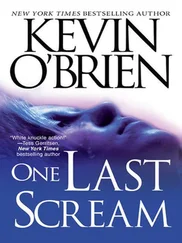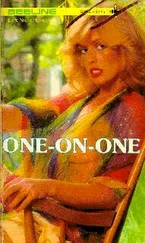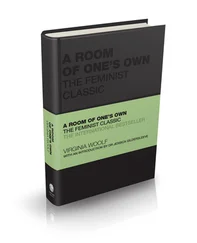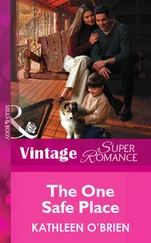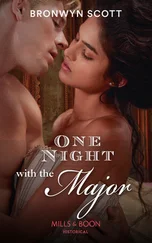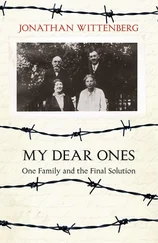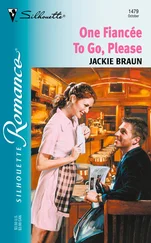‘Not for me!’ shouts Brown. *
In Brown’s memoir, he insists that ‘I don’t want to leave an impression that the events of this Khrushchev dinner were all either ludicrous, or bad-tempered, or bitchy … It was not just a boorish evening with the hosts being discourteous to the guests.’ He then rather ruins the impression of composure by adding a coda that might best be summarised as ‘He started it’: ‘Khrushchev asked for what he got by the way he spoke to us – and it is just as important that a guest should not be rude to a host as that the host should be courteous to a guest.’ *
The next day, the Speaker throws a lunch for the Soviet visitors at the House of Commons. Brown is once again invited. He decides to adopt a low profile, ‘so when the drinks were being handed round before lunch I stayed in a corner with one or two of my own cronies and didn’t go anywhere near where the Russians were being made much of by people who seemed to me a bit over-anxious to mollify their feelings’.
All goes fine until after they have finished eating. They are sipping coffee, ‘when who should approach me but Bulganin. He looked closely at me with those lovely blue eyes and said something in Russian which clearly meant something like, “So you are the naughty fellow from last night!” … and I said, “Oh yes.”’
Bulganin invites Brown to come and see Russia for himself. Brown says he would be delighted. At this point, Khrushchev strides over to the two of them, and asks the interpreter what is going on. Brown doesn’t want to get involved. ‘I wished him a pleasant journey and said that I looked forward to seeing him in Moscow when I was able to take up Bulganin’s invitation.’
Brown holds out his hand. Khrushchev refuses to shake it – ‘Nyet, nyet!’ – and moves away. Brown leaves for his constituency. The Conservative politician and diarist Harold Nicolson is told all about it by a Labour contact. ‘My friend told me that in a long experience of unsuccessful banquets, that will live in his memory as the most acid failure that he has ever witnessed.’
Khrushchev subsequently remarks that if he were British he would vote Conservative. *
Brown’s invitation to Moscow fails to arrive.
BERATES
Rediffusion TV Studios, Kingsway, London WC2
November 22nd 1963
Neither his temper nor his love of alcohol prevent George Brown from becoming deputy leader of the Labour Party. *This evening, he has been enjoying one or two drinks – a few at the Lebanese Embassy, followed by a few more at a mayoral reception at Shoreditch Town Hall – when he is called to the phone. It is Milton Shulman, from Rediffusion Television, with the news that President Kennedy has been shot. Will Brown come and appear on a special Kennedy Assassination edition of the current-affairs programme This Week? Realising he is already the worse for wear, Brown’s wife attempts to dissuade him.
‘George, you mustn’t.’
‘I must!’ he replies.
Minutes later, Brown is driven from Shoreditch to the TV studios in Kingsway. He is a little early, so he helps himself to a couple more drinks in the green room. Before long, he is joined by two of the other guests – the historian Professor Sir Denis Brogan and John Crosby of the New York Times. Over another glass or two, he begins to hold forth about his close friendship with the late President and the future of the United States of America.
A third guest now puts his head round the door. It is the actor Eli Wallach, still clearly upset by the news of the assassination. Wallach is introduced to Brown, who tells him how much he admires his work. Wallach accepts Brown’s compliments gracefully, but he is an unassuming man, so tries to steer the conversation away from himself.
Brown misinterprets his modesty. ‘Why are American actors so conceited?’ he asks loudly, adding, ‘Someone like you always carries a newspaper sticking out of his pocket with his name in the headlines!’ Wallach attempts to defend himself, saying that, on the contrary, he is always bumping into people who can’t put a name to his face.
‘Have you ever been in a play by Ted Willis?’ asks Brown, randomly.
‘No,’ replies Wallach. ‘Who’s Ted Willis?’
‘You’ve never heard of Ted Willis?!’ exclaims Brown, as though this is further proof of Wallach’s vanity.
Wallach moves away, and finds himself a place on a sofa, but Brown follows him, sits down nearby, and continues to make noisy remarks about the conceit of American actors. Suddenly, Wallach loses his temper, rises from the sofa, points at the deputy leader of the Labour Party, and yells, ‘I didn’t come here to be insulted! Is this bastard interviewing me on the programme? If so, I’m leaving now!’
Brown is in no mood to be conciliatory. He repeats his remark about the conceit of American actors. Wallach then takes off his jacket and says, ‘Come outside! Come outside and I’ll knock you off your can!’
Brown tells Wallach to shut up and sit down. Wallach rushes forward and is about to strike when Milton Shulman leaps between the two men, pushing Wallach back on the sofa. At this point, in comes Carl Foreman, the director of The Guns of Navarone, who imagines the dispute is between Wallach and Shulman, and attempts to intervene. Meanwhile, Shulman is trying to placate Wallach. ‘He’s not going to interview you! He’s one of the guests!’
‘I don’t care who he is,’ says Wallach. ‘I’ll still knock the shit out of him!’ By now, Brown has been reduced to silence. The time has come to go downstairs to the studio, always a sobering moment. Brown goes over to Wallach. ‘Brother, brother,’ he says, ‘I don’t think we should go into the studio this way … Let’s shake hands.’ They shake hands awkwardly. Wallach goes through the door first. As he advances along the corridor, Brown shouts after him, ‘And now you’ll know who Ted Willis is!’
The live broadcast begins. The urbane interviewer, Kenneth Harris, turns first to Brown. ‘I know you met President Kennedy once or twice,’ he says. ‘Did you get to know him as a man?’
A look of intense irritation flashes across Brown’s face. ‘Now, you’re talking about a man who was a very great friend of mine!’ he barks. Tears welling in his eyes, he embarks on a slurred and rambling monologue, ‘a compound’, in his biographer’s view, ‘of maudlin sentimentality, name-dropping and aggression’ about ‘Jack’ (‘who I was very near to’), ‘Jackie’ and their children. Brown’s colleague Richard Crossman is watching the programme at home. ‘At the first moment I saw that he was pissed and he was pretty awful. He jumped up and down and claimed a very intimate relationship with Kennedy.’
In fact, the records show that Brown’s acquaintance with Kennedy extended to three brief official meetings: on July 9th 1962, from 5.15 p.m. to 6.08 p.m.; on June 14th 1963, from 11 a.m. to 11.55 a.m.; and between 5.30 p.m. and 5.40 p.m. on October 24th 1963. Nevertheless, in his autobiography he feels able to boast: ‘Jack Kennedy was one of the two Presidents of the United States whom it has been my privilege to know well. I came to love and admire him …’ Who knows what the President thought of Brown? His initial briefing note on him from the American Embassy in London advises that ‘certain character defects such as irascibility, impulsiveness and heavy drinking have left his future position in the Party in doubt’.
Brown’s television appearance, and a subsequent, widely disseminated, report in the New York Times of his set-to with Eli Wallach, prompt many complaints from the general public, to all of which Brown dispatches the same printed reply: ‘Thank you very much for your letter, and may I say how sorry I am that you felt that you had to write in those terms.’
Читать дальше

